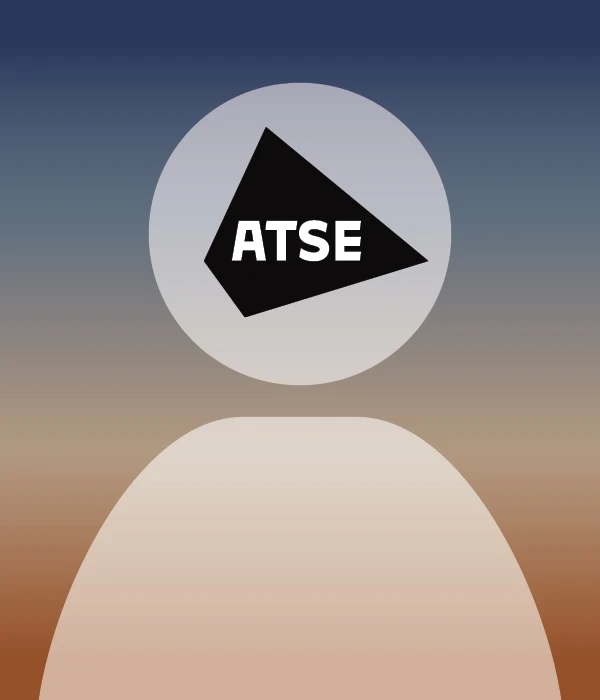
OBITUARY
Brian Spies died on 08/02/2020.
Born in 1949, Brian double-majored in Geology and Physics at the UNSW in 1971 and went on to earn a Graduate Diploma in Applied Geophysics on a cadetship from the Bureau of Mineral Resources, where he worked with a broad range of geophysical techniques in the Australian outback.
In 1976 Brian received the first Society of Exploration Geophysics (SEG) Foundation scholarship given in the southern hemisphere. This scholarship, and an Australian Public Service Board award, allowed him to attend Macquarie University, obtaining a Ph.D. in 1980 for the application of transient electromagnetics in deeply weathered terrains under the supervision of the late Professor Keeva Vozoff FTSE. Brian also studied electrical prospecting methods in the then USSR, and was an early pioneer in the use of the transient electromagnetic method.
In 1984 he commenced employment at the ARCO Oil and Gas Research Center in Texas where he expanded his interests to include multicomponent seismology and reservoir characterization. In 1989 Brian was awarded ARCO’s highest technical award, the Outstanding Technical Achievement Award in Research, for development of the Transient Electromagnetic Probing (TEMP) corrosion detection technique.
In 1990 Brian moved to Schlumberger- Doll Research in Ridgefield, Connecticut, where he led development of deep-probing electromagnetic borehole techniques for reservoir imaging and worked on reservoir monitoring with permanently emplaced sensors.
Brian’s contributions to geophysics include nine patent families and 80 publications and articles. He was on the Editorial Board of Petroleum Geoscience; a member of ASEG, SPWLA, AGU, and EAGE; served on the US National Academy of Sciences Committee for Non-Invasive Characterization of the Shallow Subsurface and, for the period 1990–1992, chaired the TLE Editorial Board and served as Associate Editor of Geophysics during 1985–1989 and 1995–1998.
His academic posts included Visiting Assistant Professor, University of California, Berkeley (1981–1984), Adjunct Professor, Western Connecticut State University (1991–1992), Honorary Professorial Fellow, University of Wollongong (2000-2003) and Senior Visiting Fellow at UNSW (2010–2012).
In 1995 Brian returned with his family to his native Australia to become Director of the CRC for Australian Mineral Exploration Technologies (CRC AMET). He was elected a Fellow of ATSE in 1998, was awarded the Australian Centenary Medal for his services to geoscience in 2003, and elected as a Fellow of the Royal Society of NSW in 2016.
In Australia, his roles have included Chief Research Scientist at CSIRO, Director of Physics at ANSTO, and in 2004 Science Manager, and later Principal Scientist Sustainability and Climate Change, at the Sydney Catchment Authority where he modelled future rainfall patterns with the aim of ensuring reliable water supplies for Australia’s large population centres.
His national report on salinity mapping methods highlighted the importance of electromagnetics as the non-invasive method for determining deeper subsurface salinity. His work on the impact of longwall mining on surface water-ground water interactions and changes in chemical composition of creek water reads as relevant today as it was in 2007.
Brian has made a huge contribution to ATSE over the last 22 years. He was the Hon. Secretary of the NSW Division of ATSE during 2015–2019, a NSW delegate to the ATSE Assembly 2015–2018, a member of the ATSE Membership Committee 2013–2015, and also the Deputy Chair of ATSE’s Water Forum for a number of years.
In 2012 Brian was one of the two principal authors of the ATSE Report Sustainable Water Management — steering Australia’s future in a green growth economy, funded by the ARC Linkage Learned Academies Special Reports (LASP) scheme. It was a seminal work and is highly referenced, even today, by other water and flood management experts in Australia.
During the 2012–2013 period Brian represented the ATSE Water Forum on the steering committees for the parallel ARC Green Growth projects in the areas of Energy and Food, and was external technical editor of the book Climate, Energy and Water published by the Cambridge University Press in 2015.
Brian was a major contributor to the ATSE Energy Forum and was part of the organising committee for ATSE NSW’s series of energy symposia dealing with the energy topics interrelated to climate science: Intelligent Grids in 2015, Beyond Coal — What Will Power NSW in 2016, The NEM Post Finkel in 2017 and Energy Markets — The Consumer Perspective in 2018. In the later part of his career Brian took particular interest in the political and sociological barriers to acceptance of climate science. Brian was a prolific public speaker and a presenter of blogs to local groups on this topic such as Probus, Rotary, and Apex, and also to his fellow geophysicists at ASEG. In 2016 he headed the organisation of a Royal Society of NSW Four Academies forum at NSW Government House on the topic of “Society as a Complex System” which he chaired. Brian’s talk was, as you might expect, titled The Science, Psychology and Politics of Climate Change. There were 130 attendees at the forum.
Even when Brian’s health was seriously degenerating in October last year, Brian managed a video blog from his home office for the Citizens Climate Lobby on the topic of “The Psychology of Belief Systems” — which explored some of the ideological barriers inhibiting broader acceptance of climate science and its implications.
In solving any problem Brian always brought great passion and hard work. He had unique skills in strategic planning, evidence-based decision making and cross-disciplinary integration. He was a zealot but with humanity and humility. He approached every job with an outrageous sense of humour and enthusiasm, and it was more important to him to achieve the big vision than for him to get the personal credit.
Dr Spies died 8 February 2020, aged 70. He is survived by his wife Pam, children Anna and Lexi, and four grandchildren.